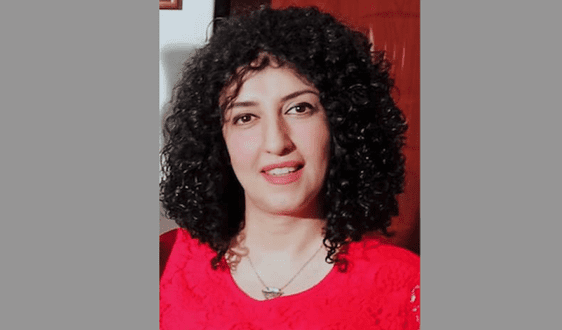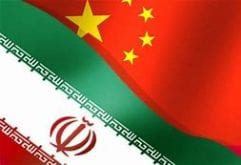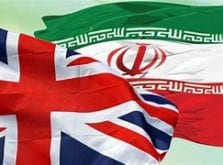CHRI – Imprisoned Nobel laureate Narges Mohammadi faces new charges that underscore the draconian tactics employed by Islamic Republic of Iran officials to silence dissent and punish peaceful activists. The international community must quickly respond with strong collective action to end her imprisonment, said the Center for Human Rights in Iran (CHRI).
“Narges Mohammadi’s imprisonment in Iran is the price she is forced to pay for her tireless defense of fundamental rights and freedoms, particularly for prisoners of conscience, notably women, throughout the nation,” said CHRI Executive Director Hadi Ghaemi.
“The Islamic Republic’s continuous use of imprisonment as a tool of repression demands global denouncement and a coordinated commitment to hold Iranian officials accountable for their rampant and egregious violations of human rights,” emphasized Ghaemi.
While summoned to appear at the prosecutor’s office in Evin Prison on November 12, 2023, Mohammadi, 51, refused to comply with the state’s forced-hijab law and consequently was not brought to the office. Consequently, she has not officially received any new charges, as disclosed by an Instagram accountproviding updates on her case.
This marks the “seventh case opened against her in the last nine months” since the initiation of Iran’s “Woman, Life, Freedom” movement, according to the Instagram post. All charges stem from her peaceful advocacy for basic rights and freedoms for all Iranian citizens, both within and outside prison walls.
In and out of Iranian prisons for more than a decade, the renowned advocate of women’s and human rights has two current cases against her at two branches of the state’s Revolutionary Court system in Branch 26 led by Judge Iman Afshari and Branch 29 led by Judge Amouzad.
She is currently serving a 10-year sentence in Evin Prison, infamous for its imprisonment of human rights defenders, on sham charges of “spreading propaganda against the state.”
After a three-day hunger strike Mohammadi begun on November 3, 2023, to demand access to medical treatment, she was briefly allowed to leave her cell to visit a hospital without a hijab, a statement on the Mohammadi freedom campaign’s social media said.
Mohammadi has been experiencing increasing health problems while imprisoned in Iran over the years, including heart problems. Over the years, political prisoners in Iran have died due to the denial of proper medical treatment and following hunger strikes undertaken by prisoners in a desperate bid to call international attention to their plight.
“We are dismayed that Iranian authorities continue to deprive Ms. Mohammadi of her liberty, despite concerns about her deteriorating health in detention, against the advice of medical professionals, in violation of their obligations under international human rights law,” said the UN Working Group on Arbitrary Detention on October 11, 2023.
The UN Working Group reiterated its previous call for her release, after designating her detention as arbitrary and called for compensation and reparations.
Mohammadi was awarded the Nobel Peace Prize on October 6, 2023, “for her fight against the oppression of women in Iran and her fight to promote human rights and freedom for all.”
Her husband and children, who have been forced to live in exile in France since 2011 when Mohammadi was initially imprisoned, are preparing to attend the Nobel Peace Prize ceremony in Oslo on December 10, 2023, to accept the award for her. Because her family has been unable to travel to Iran where they would face severe persecution by Iranian authorities, Mohammadi has not seen her children or husband in person for the past 12 years.
“World leaders must vehemently and repeatedly demand freedom for prisoners of conscience in Iran,” said Ghaemi. “Raising our voices in solidarity with the political prisoners languishing for years in Iranian prisons in the pursuit of justice is a global imperative.”
 Shabtabnews In this dark night, I have lost my way – Arise from a corner, oh you the star of guidance.
Shabtabnews In this dark night, I have lost my way – Arise from a corner, oh you the star of guidance.



